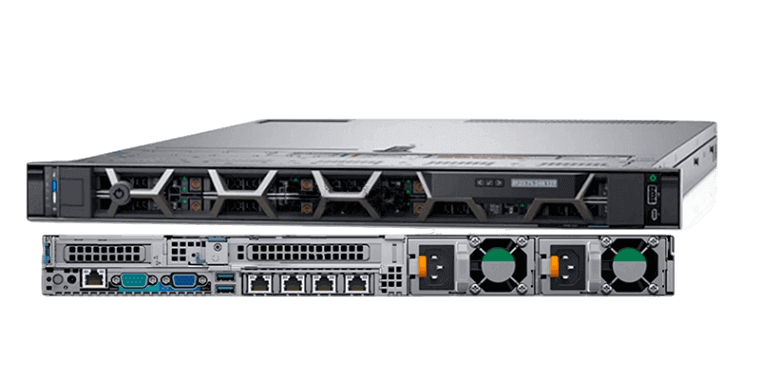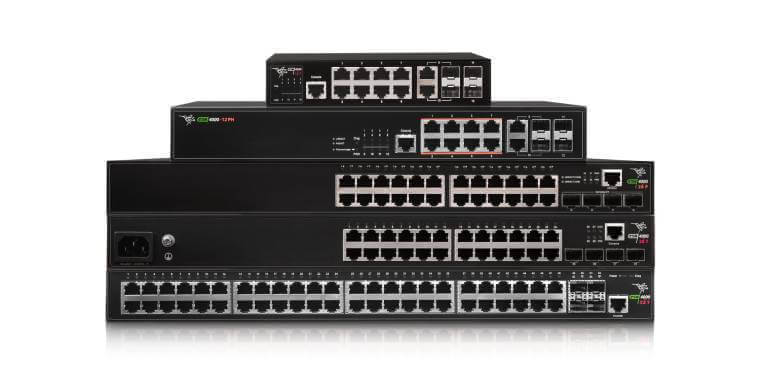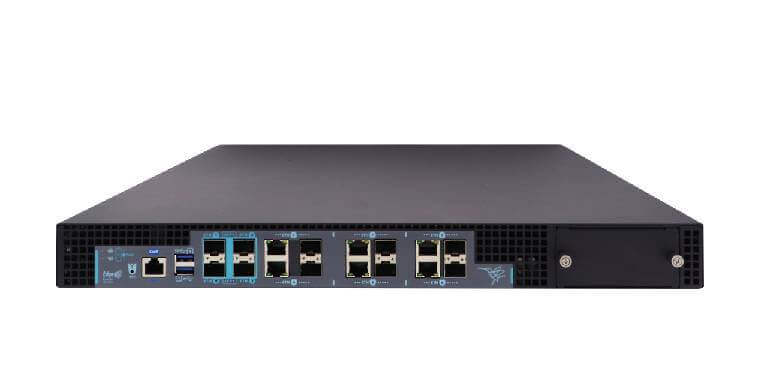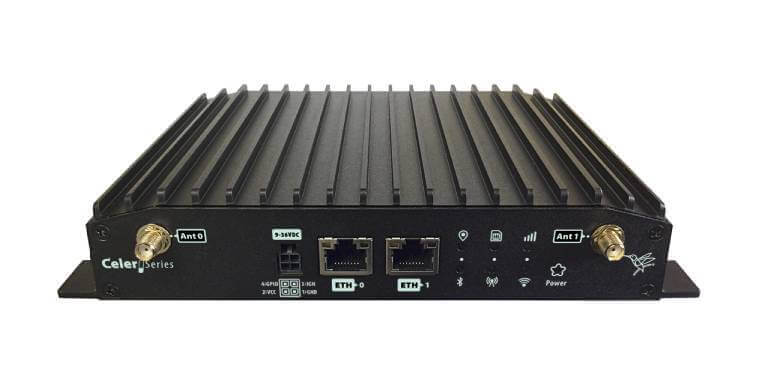GigaOm's Enterprise
Firewall Radar
Scoring Five-Stars in SD-WAN, SASE,
OT Cybersecurity,
ZTNA, and much more…

Teldat Solutions
Edge Network
Computing
World-class
edges
Advanced
Networking
Make
the Net work
Network
Security
Cybersecurity for all
company sizes
Industrial
IoT
Secure communications
for any industry
Access
Products
Total connectivity
in your business
Case Studies
Caja Rural Group & RSI: A complete SASE solution

The Caja Rural Group was faced with a communications scenario that lacked flexibility, as well as a network without proper security. Each of the 34 entities that make up the Caja Rural Group had its own communications network, based on MPLS and Legacy technologies (both for their main and back-up lines). This translates into an outdated scenario that did not allow the Caja Rural Group to make the most of its telecommunication networks. In addition, this very fragmented scenario ended up being very expensive.
One of the most important keys the bank has identified for its digital transformation is that of modernizing its technological infrastructure. The digitalization process of this customer is a process keeping pace with technological advancements and therefore ongoing. In this case, the customer has undergone various phases of technological change related to Teldat.
SD-WAN for a pharmacy’s network
The pharmacy chain is experiencing rapid growth and development and anticipates its stores will increase in number from 1,030 to 1,500 this year alone. Given this expansion, our customer recognized the need to find new solutions to various problems.
The customer currently uses corporate Internet. Due to not having MPLS VPNs, the company found itself in an untenable situation, with constant signal intermittency or interruptions just being one of the many problems.

Obviously without a reliable connection, vital services such as online virtual or onsite doctor consultations or even cell phone credir refills were unfeasible
IP network protocols for Smart Grid

In recent years, the client has begun an ambitious initiative aimed at carrying out a technological transformation in the field of smart grids. This project resulted from a change in regulations requiring older electricity meters to be replaced with a new electronic device that enables hourly discrimination and remote management; that is, it provides the ability to read customer meters and change contract conditions without having to send someone to the customer’s site.
In order to meet these objectives, the client has developed an intensive plan to modernize 97.7% of its Spanish meter park and adapt almost all of its transformation centers by the end of 2018. With the Spanish electricity scenario in mind, this adaptation has been implemented in two phases. In the first phase, 80% of the company’s meters were replaced, with the focus on densely-populated areas where there was a greater concentration of meters.
Total connectivity for buses
This project is composed of two separate phases. Phase one, in 2010, consisted of installing 2,200 Teldat H1-Automotive devices on EMT buses. Phase two, a renewal phase implemented in 2017, involved the routers being replaced by their latest version, the Teldat H2-Automotive+.
Initially, the main objective was to make the bus network safer and more comfortable by installing a series of CCTV cameras (operated and managed from an Alarm Reception Center) throughout the bus fleet.

To ensure a high resolution and real-time access to on-board camera footage from the Alarm Reception center, the buses required a reliable broadband connection.
On board connectivity for high speed trains

Teldat installed H2-Rail routers and APR222ac access points in coaches. The H2-Rail device is in charge of providing ground-to-traincommunication and onboard connectivity. Thanks to its rugged hardware design, it is fully protected against vibrations and can withstand extreme temperatures ranging from-25 ºC to 70 ºC.
As a result, the device passed all standardization tests and met the project’s strict requirements. To improve access to the mobile network, H2-Rail routers are equipped with up to fourLTE modules. In this particular case, the device had an additional satellite link.
The Open Link Aggregation (OLA) functionality, developed by Teldat, was used to optimize and better combine the different WAN links available. This feature allows for the simultaneous use of WAN interfaces, meaning the available bandwidths in each link can be shared to improve the internal network’s quality of service.
Teldat offers 5G connectivity for a major appliance manufacturer
Teldat provides ultra-fast, secure and efficient 5g connectivity to a german manufacturer of high-end appliances with a global presence, operating in different countries and regions. With a workforce numbering in the thousands and a strong network of business partners, the company is recognized as a leader in the major home appliance industry, particularly noted for its superior quality and advanced technology.
The organization is also deeply committed to corporate sustainability and upholds longstanding traditions that are integral to its identity.

empty
Financial
Teldat deploys SD-WAN in a large bank

The bank, like all others in its sector nowadays, is facing a far-reaching technological and cultural transformation. The banking industry continues to advance swiftly towards a new ecosystem and prioritizes adapting to meet the needs of new “digital” customers. As a result, the customer has undertaken radical organizational and technological change to drive forward a renewal of corporate culture and speed up the transition from an “analog” bank to a knowledge-based service company of the digital age.
One of the most important keys the bank has identified for its digital transformation is that of modernizing its technological infrastructure. The digitalization process of this customer is a process keeping pace with technological advancements and therefore ongoing. In this case, the customer has undergone various phases of technological change related to Teldat.
Healthcare
Teldat SD-WAN for a pharmacy’s network
The pharmacy chain is experiencing rapid growth and development and anticipates its stores will increase in number from 1,030 to 1,500 this year alone. Given this expansion, our customer recognized the need to find new solutions to various problems.
The customer currently uses corporate Internet. Due to not having MPLS VPNs, the company found itself in an untenable situation, with constant signal intermittency or interruptions just being one of the many problems.

Obviously without a reliable connection, vital services such as online virtual or onsite doctor consultations or even cell phone credir refills were unfeasible
Industrial & IoT
Teldat provides IP network protocols for Smart Grids

In recent years, the client has begun an ambitious initiative aimed at carrying out a technological transformation in the field of smart grids. This project resulted from a change in regulations requiring older electricity meters to be replaced with a new electronic device that enables hourly discrimination and remote management; that is, it provides the ability to read customer meters and change contract conditions without having to send someone to the customer’s site.
In order to meet these objectives, the client has developed an intensive plan to modernize 97.7% of its Spanish meter park and adapt almost all of its transformation centers by the end of 2018. With the Spanish electricity scenario in mind, this adaptation has been implemented in two phases. In the first phase, 80% of the company’s meters were replaced, with the focus on densely-populated areas where there was a greater concentration of meters.
In-Vehicle
Teldat offers total connectivity for buses
This project is composed of two separate phases. Phase one, in 2010, consisted of installing 2,200 Teldat H1-Automotive devices on EMT buses. Phase two, a renewal phase implemented in 2017, involved the routers being replaced by their latest version, the Teldat H2-Automotive+.
Initially, the main objective was to make the bus network safer and more comfortable by installing a series of CCTV cameras (operated and managed from an Alarm Reception Center) throughout the bus fleet.

To ensure a high resolution and real-time access to on-board camera footage from the Alarm Reception center, the buses required a reliable broadband connection.
Rolling Stock
Teldat provides on board connectivity for high speed trains

Teldat installed H2-Rail routers and APR222ac access points in coaches. The H2-Rail device is in charge of providing ground-to-traincommunication and onboard connectivity. It has been specifically designed for high-speed trains and has the necessary certifications (i.e. EN 50155) to fully operate in a wide-range of scenarios. Thanks to its rugged hardware design, it is fully protected against vibrations and can withstand extreme temperatures ranging from-25 ºC to 70 ºC.
As a result, the device passed all standardization tests and met the project’s strict requirements. To improve access to the mobile network, H2-Rail routers are equipped with up to fourLTE modules. In this particular case, the device had an additional satellite link.
The Open Link Aggregation (OLA) functionality, developed by Teldat, was used to optimize and better combine the different WAN links available. This feature allows for the simultaneous use of WAN interfaces, meaning the available bandwidths in each link can be shared to improve the internal network’s quality of service.
Retail
Teldat offers 5G connectivity for manufacturer
Teldat provides 5g connectivity to a german manufacturer of high-end appliances with a global presence, operating in different countries and regions. With a workforce numbering in the thousands and a strong network of business partners, the company is recognized as a leader in the major home appliance industry.

Our client can be considered a market leader in the major appliance sector, especially as far as quality and technology are concerned. Moreover, it has corporate sustainability values, as well as important traditions within the company.
Teldat Blog
From Firewalls to XDR: A Historical Journey Through Enterprise Cybersecurity
The Ever-Evolving Cyber Threat Landscape Over the past few decades, cybersecurity has undergone a profound transformation in response to an increasingly interconnected and digitalized world. What once revolved around basic perimeter defenses—such...
Quantum computing and the path towards secure Quantum SD-WAN
Quantum computing is no longer confined to research laboratories; it has emerged as a technological force with the potential to transform—and potentially undermine—digital security as we know it. Its rapid advancement is accelerating the arrival of...
Critical fleets are only as resilient as their connectivity
In critical fleet operations, vehicles aren’t standalone units anymore. Each one is a mobile part of a bigger digital system that relies on continuous, secure, real-time communications. Video streams, telemetry, location data, remote diagnostics,...




















































